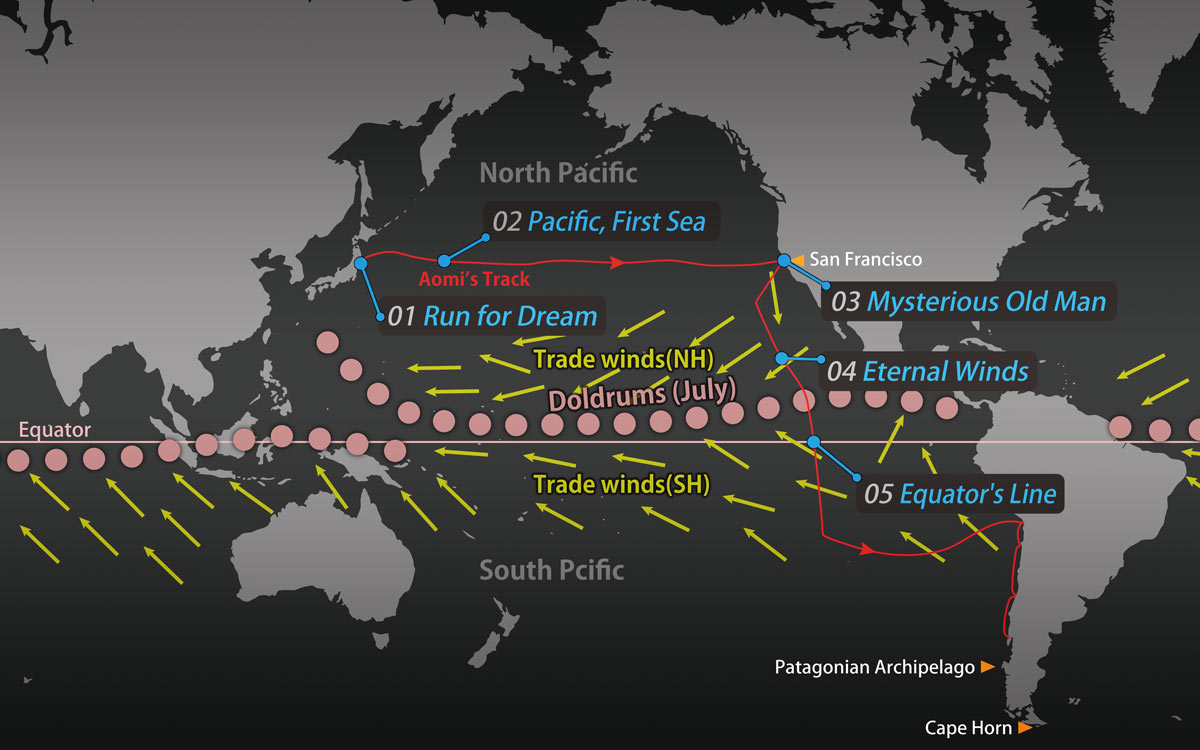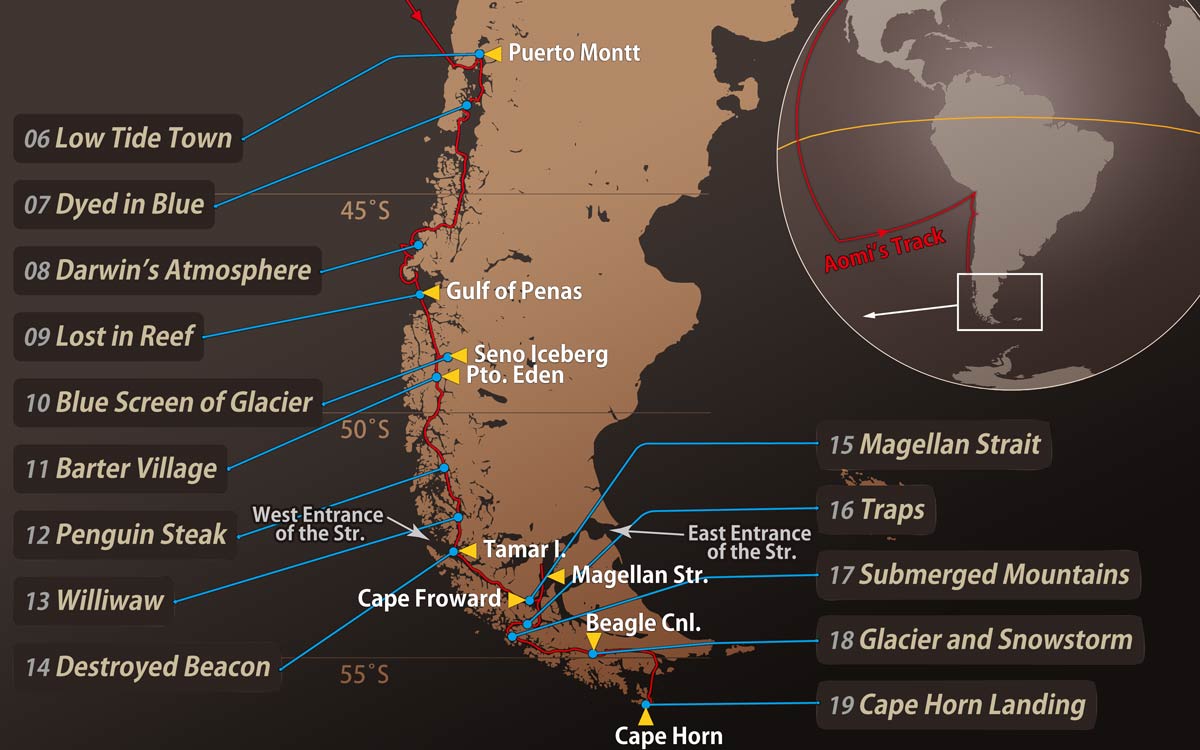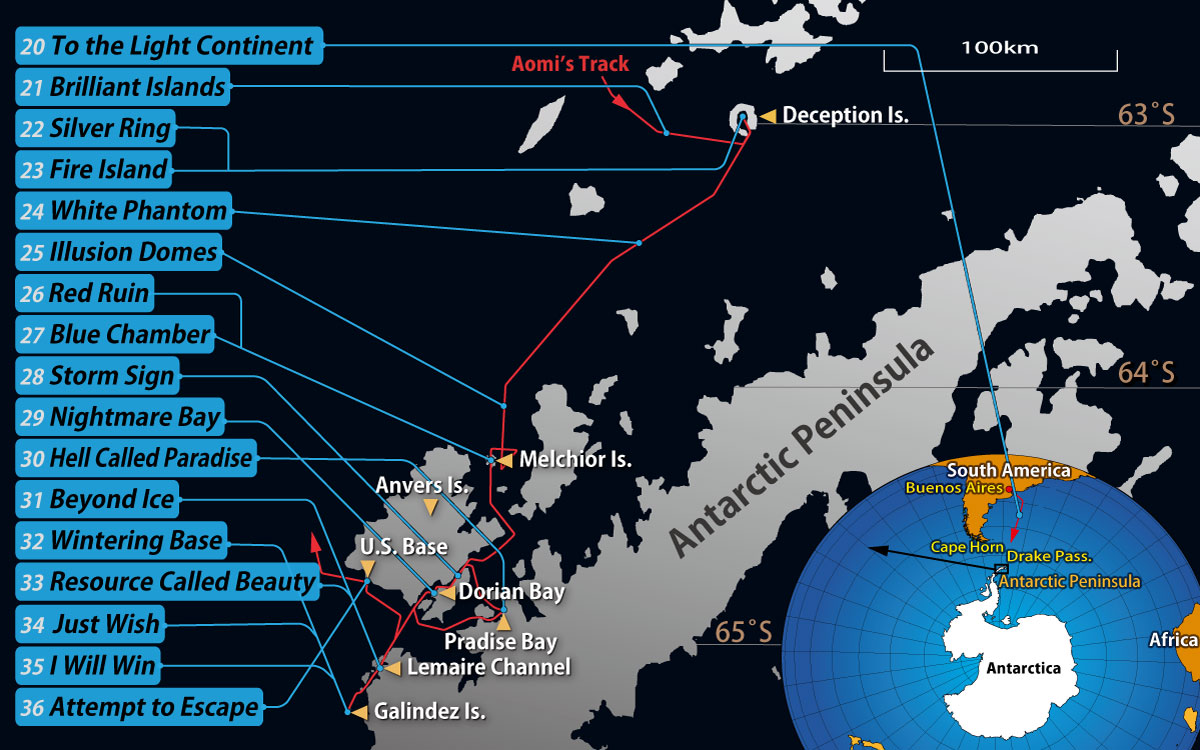Afterword:
What the Ocean Taught Me About Earth and Humanity
After the voyage, so harsh that malnutrition left ridged steps on my fingernails, I returned to Buenos Aires, 3,000 kilometers to the north, and then set out for Japan via Africa and Australia. I finally arrived home in the Northern Hemisphere’s summer, four years later.
When I stepped off my sailboat and began living in a city, I realized how different it was from the sea. There were no more waves crashing down from above and throwing me overboard; no more injuries from falling in a cabin that moved several meters up and down; no more dark nights spent trembling in fear of running aground; no more searching the sky for signs of a storm, as if reading people’s faces for a warning sign.
During the voyage, in the vast wilderness we call the sea, I was like a small animal on open grassland, living in fear of predators.
Since when have humans been able to live without fear of being hunted by other animals or threatened by the forces of nature? It is surely fortunate to live safely in a city, within a group, without fear of natural forces or natural enemies.
Yet while that kind of life goes on, I feel we have forgotten things essential to humanity’s future: memories from a distant past, perhaps the experiences of our ancestors as they fled from natural enemies, from ancient predators as terrifying as dinosaurs.
In other words, we have forgotten the laws of nature itself, the ones vital for survival in the wild: courage, instinct, and awareness.
Perhaps I feel this so strongly because I left the city that had long been my world and set sail. Living alone in nature’s beauty and harshness, my senses gradually sharpened, and I may have felt with my whole body that the city’s common sense was not the common sense of Earth.
As I sailed through the heart of the ocean, with no trace of humanity in sight, I saw the sun burn deep orange and the wind sweep a sea of shining silver. In that timeless moment, I may have realized that they had existed since the distant past. I may have understood that the common sense of modern society is not the common sense of Earth, which has existed for more than four billion years.
Of course, I do not have the power to describe these details. Perhaps they cannot be put into words; perhaps they are only things you can feel with your skin, your muscles, or even your internal organs: things you may not be sure exist, things you cannot translate into language or symbols.
Even so, when I left my familiar community and risked my life on the ocean, the storms, the calms, and the sun certainly taught me something. In the long view, I feel what they taught me will shape the fate of people living on Earth.
So, even if I cannot express it in words, no matter how difficult it is, I have to convey it to you somehow, and I hope you can understand even a small part of it through this book.
Now that I have completed my solo voyage around the world and live in a safe city, protected from outside threats, a new thought is rising at the center of my heart, one I cannot suppress.
Waves foamed white like winter mountains; the terror of blue ice crashing into my sailboat Aomi in the Antarctic; the pitch-black night when I drifted with a broken mast: were these things really real? I now feel as though the whole voyage had been a long, long dream.
Yet when I think back carefully, I realize that I was vividly aware, through my own eyes, skin, and whole body, of being truly alive on this beautiful water planet called Earth. There is no doubt about it.
If that was reality, and if that life-threatening journey was not a dream, then the peaceful city life I live now must be the dream. I still feel a strange sense of wonder, as if I have entered another world and never truly returned from the sea.
I even wonder, half seriously, whether there is any real difference between reality and dreams, or between being alive and being dead.



Hi! Any questions or suggestions about the content are greatly appreciated.
I’d also love writing tips from native English speakers. Since English isn’t my first language, if you notice any awkward phrases or anything that seems off, please let me know.
Thank you!
E-mail